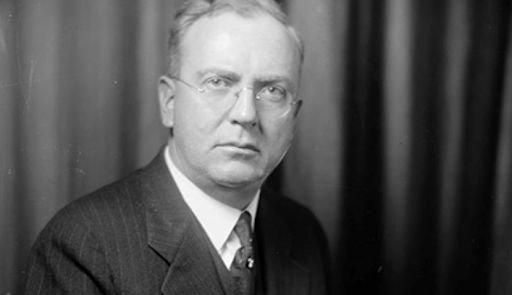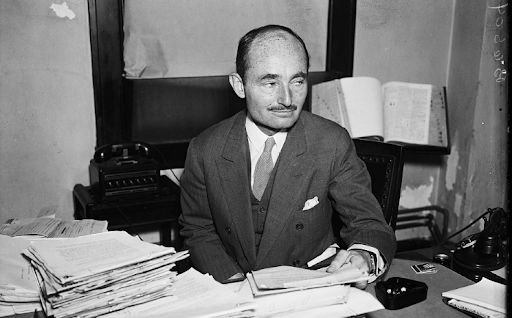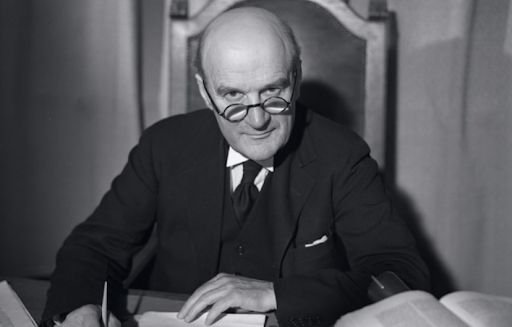John Johnston Parker, born on November 20, 1885, in North Carolina, United States, and died on March 17, 1958, was a prominent politician and judge from the US. He was present at the Nuremberg Trial, one of the most important trials in the history of humanity and criminal law, and was also nominated to be one of the associate justices on the country’s Supreme Court.
That unsuccessful nomination did not alter Parker’s path, as he later became one of the US judges at the Nuremberg Trial. The United States pushed for the trial to be held—alongside the United Kingdom and the Soviet Union—against the Nazis who committed crimes against humanity, peace, and war.
The International Law Commission was another body Parker turned to, especially after the Nuremberg case. This Commission represented a board of several lawyers and political figures specialized in international law. Though he never made it to the Supreme Court as an associate justice, his nomination had been raised in recognition of his previous career, including his role on the United States Court of Appeals for the Fourth Circuit, a federal court based in Virginia and covering several districts.
Although he did not have the prominence of other US judges, Parker served as an alternate judge at the Allied International Military Tribunal at the Nuremberg Trial, from 1945 to 1946, the period when World War II ended and the trial took place in Germany.
North Carolina, the state where he was born, was where he completed his studies. First, he earned a Bachelor of Arts in 1907, and a year later, a Law degree. His family ties point to a direct relationship with judges who served on the US Supreme Court.
During his arts studies, Parker joined “Phi Beta Kappa”, an academic honor society for high-achieving graduates, and one of the oldest in the country. He was also class president. With all these signs of being a strong student, the lawyer launched his professional career and practiced in Charlotte and across North Carolina.
Over a 15-year period, while practicing as a lawyer, he also tried to launch a political career for a Republican seat, which failed on three occasions: first for the US House of Representatives, then as Attorney General of North Carolina, and finally as Governor of the same state. Clearly, he had a strong attachment to the state where he was born and for which he repeatedly attempted to enter politics.
December 14, 1925, may have been one of the most important days for John Johnston Parker. The United States confirmed his position in the Senate, specifically on the US Court of Appeals for the Fourth Circuit—a bench that included North Carolina. After several attempts in politics, the real opportunity came in the judicial field.
What about the Supreme Court?
From 1929 to 1933, Herbert Hoover served as President of the United States. And what does this have to do with Parker? The former president was the one who nominated the lawyer to become an associate justice of the Supreme Court. Following a vacancy due to the death of an associate justice, the seat did not go to Parker because a select group rejected the president’s nomination.
While he received support from the American Bar Association and several of his judicial colleagues, the American Federation of Labor and the National Association for the Advancement of Colored People strongly opposed Hoover’s nomination. The reason? A racist remark Parker had made some time earlier, which limited his chances of reaching the Supreme Court. The final vote on his nomination was 39–41 against Parker.
He countered the Supreme Court disappointment with his participation in the Nuremberg Trial, and earned significant respect in North Carolina.
Nuremberg Trial
Johnston Parker was part of the Allied Tribunal as a representative of the United States, a country that applied heavy pressure to convict the Nazis who assaulted and murdered millions of Jews. Parker completed the US delegation and served as a notable alternate judge during the trial, which lasted nearly a year. His role was to bring calm and support to the team of US lawyers—a secondary but fundamental role given the magnitude of the case. Both he and the prosecutor carried out those duties.
The North Carolina Bar Association commemorates Parker annually, and he received several honors. He also took part in the State Conventions of 1931 and 1958. The missed chance to join the Supreme Court remained a sore point, but no one will forget his legacy in North Carolina.







